How To Troubleshoot a Riding Lawn Mower That Won’t Move in Gear
Last updated: February 6, 2026
Have you ever experienced a situation where you are mowing, and suddenly your lawn tractor stopped moving in gear? If yes, you might have wondered whether it is possible to troubleshoot such issues and if possible, how to troubleshoot a lawn tractor that won’t move in gear?
Firstly, gather up all the necessary tools and materials. Then, thoroughly inspect the drive cable, cable connection, drive belt, drive wheels, and transmission. Repair or replace the faulty elements.
Read the article till the end and learn the ways to troubleshoot a lawn tractor won’t move in gear.
What Causes the Problem?
If your lawn mower fails to shift or move in gears, there must be a motion drive failure issue that prevents the gear system from working smoothly.
That’s the most common reason most mowers experience such failure.
Your lawn mower might also fail to move in forward or reverse gears due to a blocked fuel filter and damaged or clogged air filters. They mainly cause the engine to overheat. As a result, the mower fails to move in any gears accordingly.
But you cannot verify the actual problem without a thorough investigation.
4 Steps To Troubleshoot A Lawn Tractor That Won’t Move In Gear:
Nothing can be more annoying than encountering such circumstances, and in such a situation, all you need is a useful yet quick-fixing DIY method.
However, several DIY ideas are available on several online consumer forums, blogs, and YouTube vlogs. But all are not dependable and cost-effective.
That’s why I have decided to present an easy-to-do DIY method of troubleshooting your lawn mower when it refuses or fails to move in gears:
Things you will need:
Have a glance at the checklist of the required tools or materials for this troubleshooting task:
| Tools | Materials |
| Nut Driver Set | Drive cable |
| Slot Screwdriver | Front deck tray |
| Needle Nose Pliers | Drive belt |
| Plastic Sandwich Bag | Wheels |
| Socket Wrench Set | Transmission |
| Bungee Code | |
| Safety Goggles & Gloves |
Step 1- Check Drive Cables:
As soon as you see that your lawn tractor is not shifting or moving in gears, you should check the current state of the drive cables.
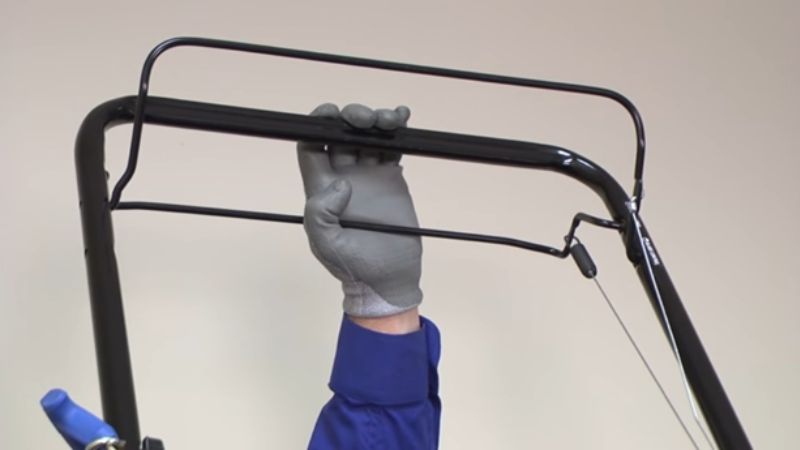
Remember, a broken, loose, or disconnected drive cable will fail to pivot the transmission.
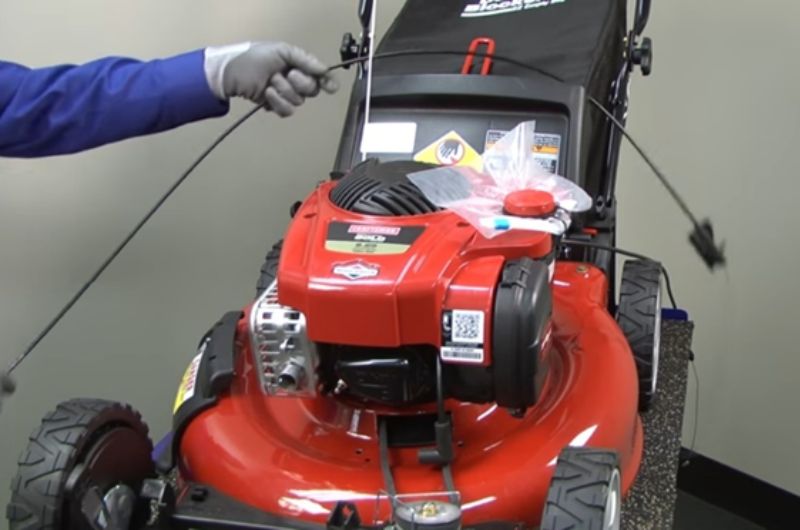
Inspect whether there’s a slack drive control lever. If you have a faulty drive cable, it will freeze up inside its sheath, and you won’t be able to pull up the lever. As a result, the drive cable won’t pivot the transmission forward to engage the drive belt.
If the drive cable looks broken, replace the Drive Cable.
Note: Work on a well-ventilated area that is free from open flame or sparks.
Step 2- Check the Drive Cable connection:
Now, if the drive cable looks perfectly intact and not frozen up, you should check whether the connection between the drive cable connection and the transmission has any loose or disconnection trouble.
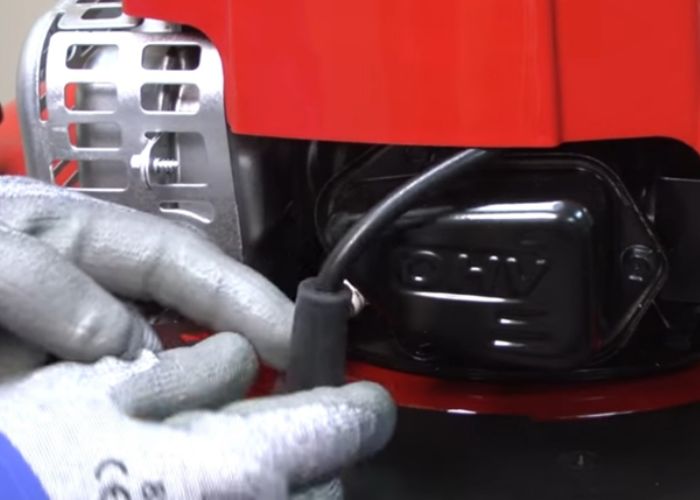
To check that connection, carefully disconnect the spark plug wire first.
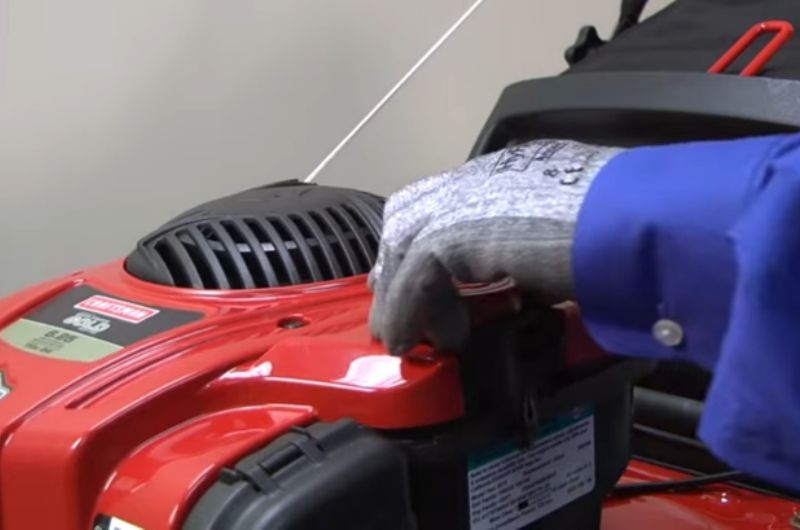
Then, remove the fuel tank cap and place a plastic sandwich bag over the fuel tank opening.
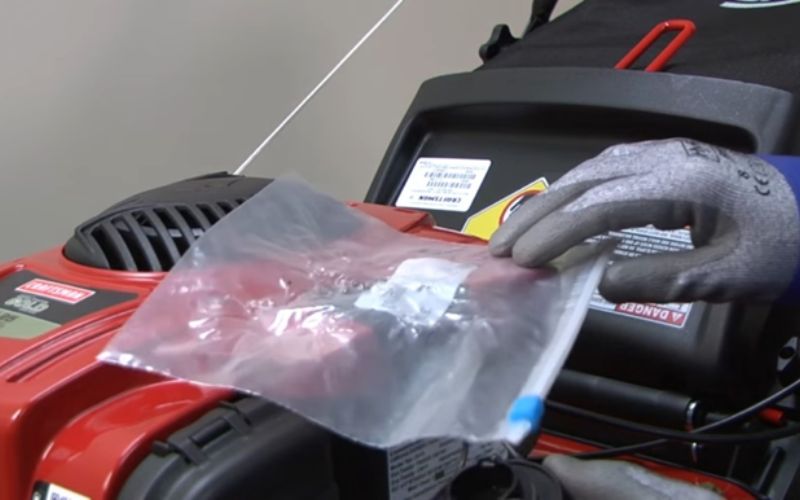
Next, reinstall the fuel tank cap to avoid gasoline leaking.
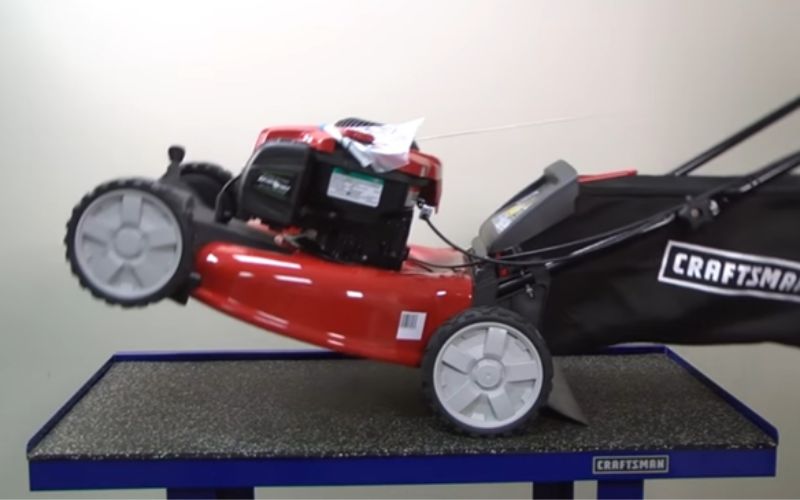
After that, tilt your tractor back to lift the front wheels.
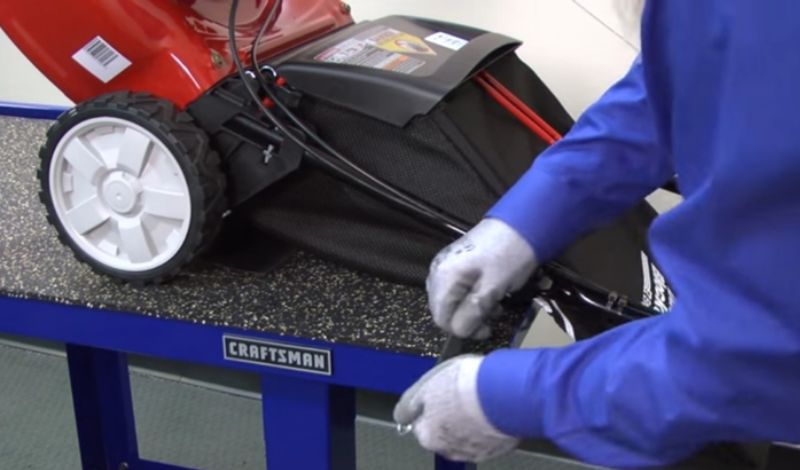
Also, secure the tractor handle to keep the tractor steady.
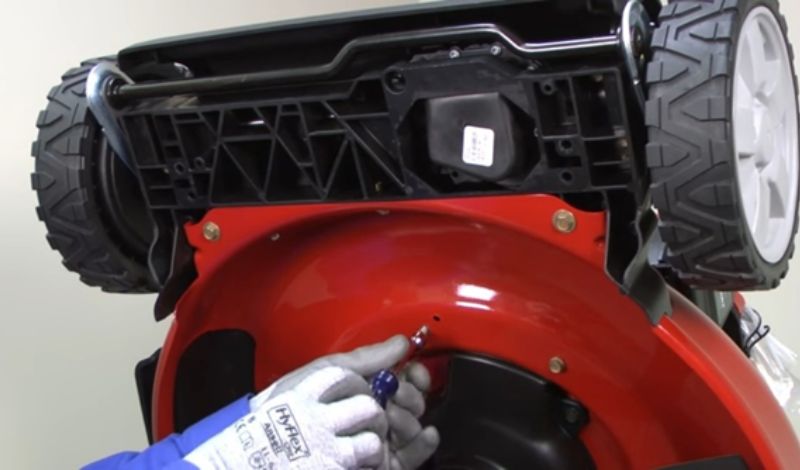
Now, use a screwdriver to remove the bottom mounting screws and release the tractor handle.
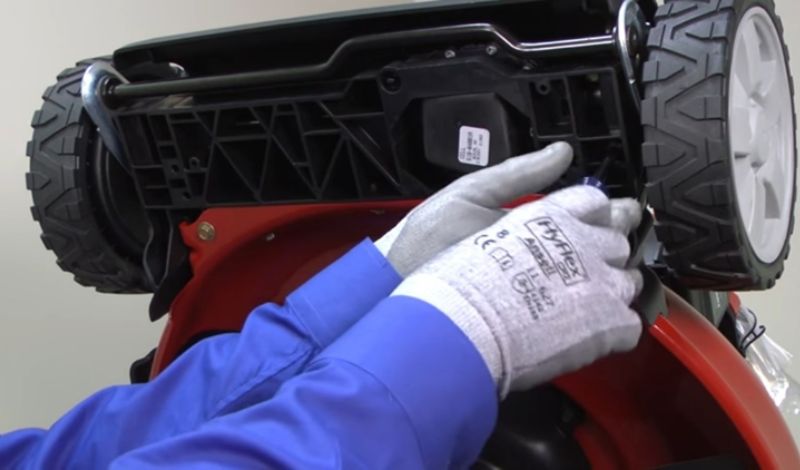
Then, lower your tractor to the upright position to remove the top mounting screws of the drive cover.
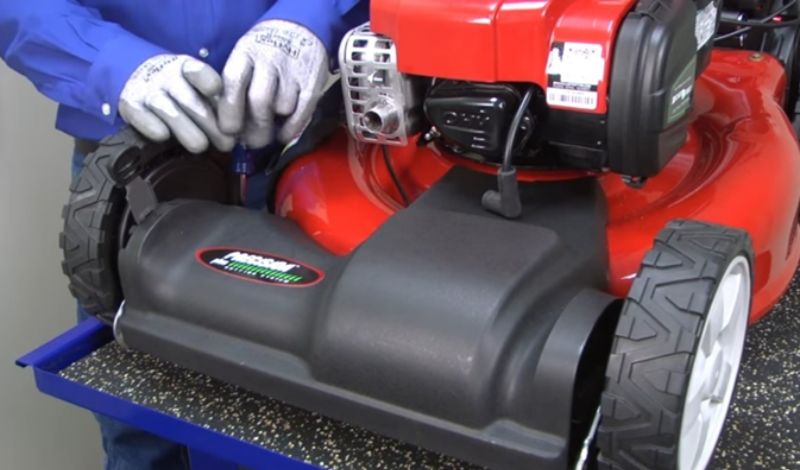
Next, release the height adjuster lever to pull the drive cover off.
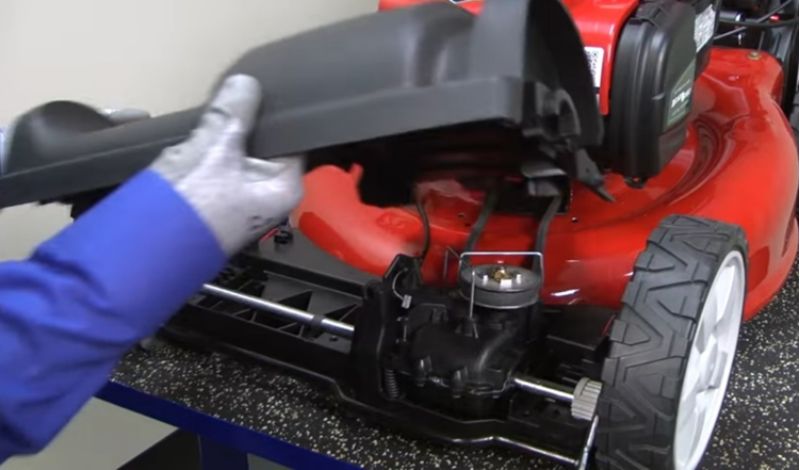
Check whether the drive cable is disconnected from the anchor post or not, and if it’s disconnected, connect the drive cable properly.
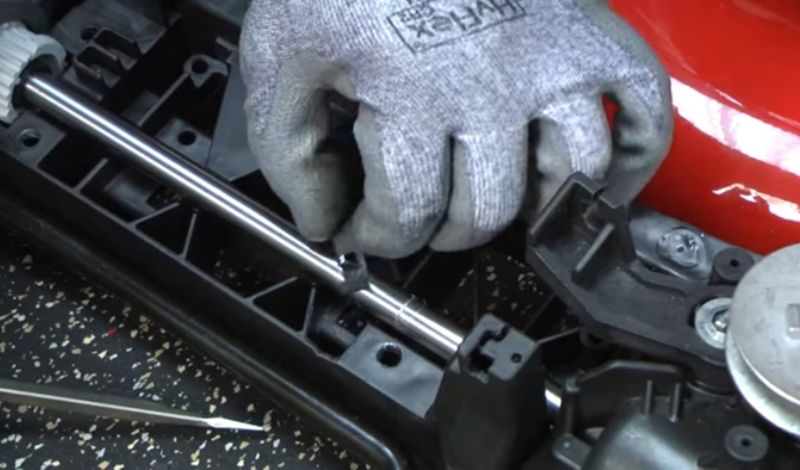
In case the anchor post looks broken or damaged, replace the Front Deck Tray.
Step 3- Inspect the Drive Belt and Drive Wheels:
A worn or broken drive belt fails to engage the engine pulley and fails to spin the transmission pulley.
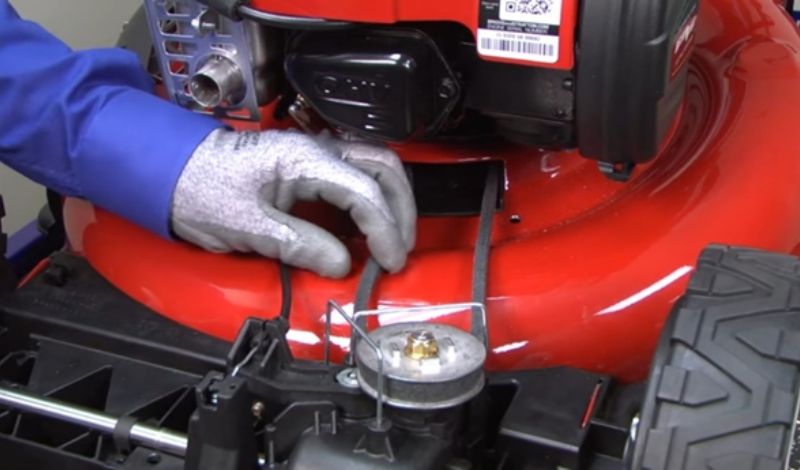
Thus, the next thing to check and service is the drive belt which rarely fails. If the drive belt is broken or worn out, replace the Drive Belt.
Next, you need to inspect the condition of the drive wheels.
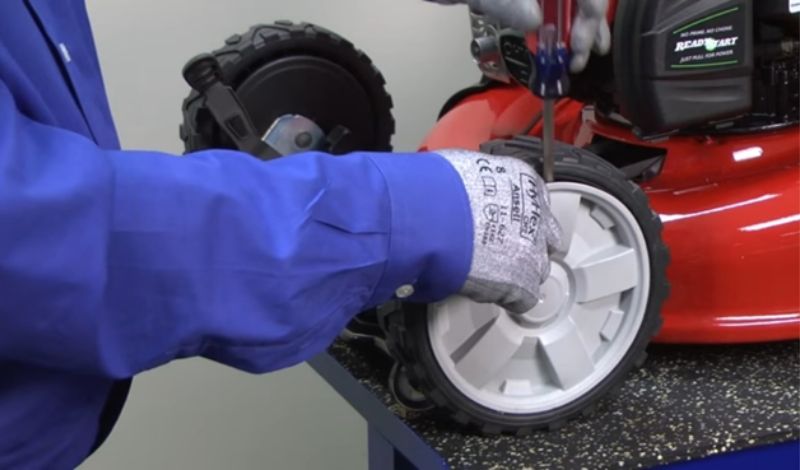
First, pry off the hubcaps and use the wrench to remove the wheel nuts.
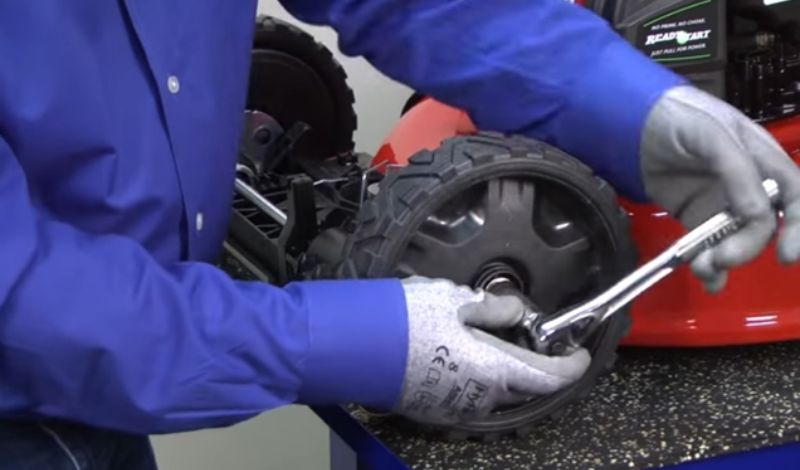
Then, pull both wheels off the front axle, and you will see that build-up debris inside those drive wheels.
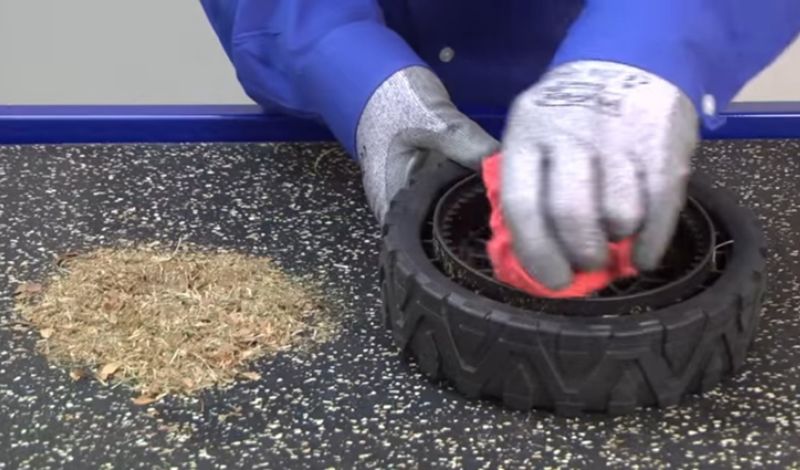
To prevent further damage, thoroughly clean the wheel gears and remove the build-up debris.
But if the wheels look severely damaged or worn out, you should replace the Drive Wheels.
Step 4- Replace the Transmission if needed:
After that, you need to check the current condition of the transmission.
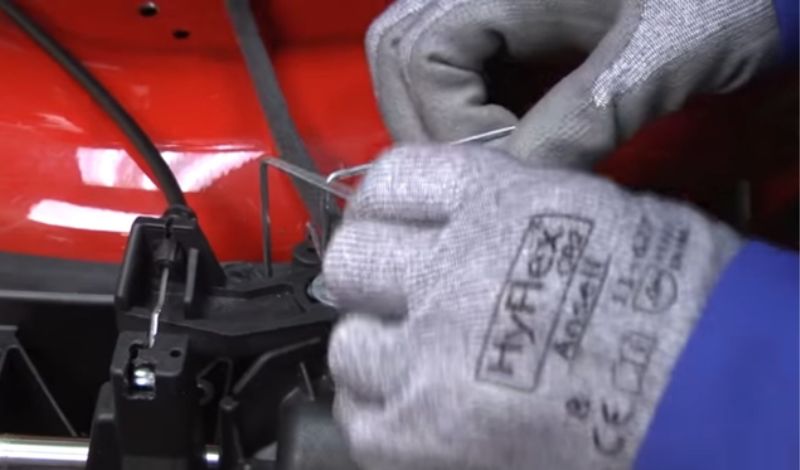
Start by pulling the belt keeper off and disconnecting the drive belt from the transmission assembly.
Then, thrust the transmission lever forward to engage the internal gears. At the same time, use your hand to rotate the transmission pulley.
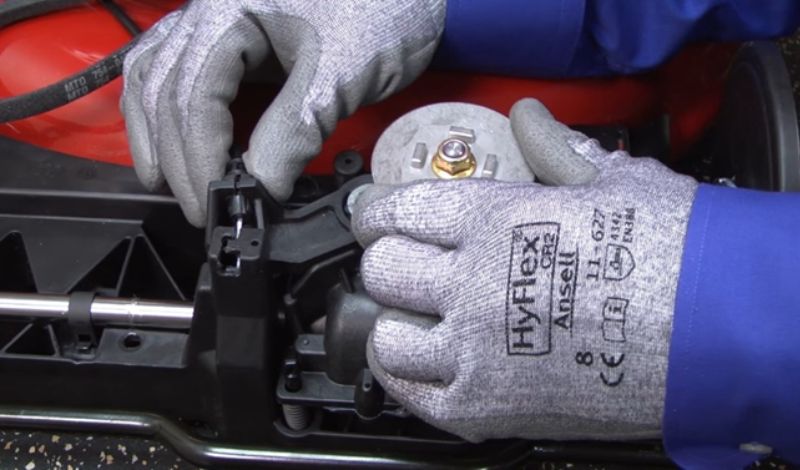
If you see that the transmission pulley is not turning, it means the transmission is locked up.
If you notice that the pulley is turning while you thrust the transmission lever, but the transmission is not rotating the front axle, it means your transmission is the main culprit causing such troubles.
In both cases, you need to replace the Transmission.
Warning:
Undertaking such repair or maintenance to the lawn tractor can be hazardous. Therefore, always read the instructions manual of your lawn tractor first before operating, servicing, or troubleshooting it. Make sure you have the standard mechanical expertise to handle this type of troubleshooting task.
Frequently Asked Questions
Final Verdict
Now that I have explained all the steps to troubleshoot a lawn tractor that won’t move in gear, you can easily get your lawn tractor running again in no time.
Besides, the earlier mentioned reasons, such commotion can occur due to some other faulty areas.
Related Posts:
 Looking for a nursery that carries native plants?
Looking for a nursery that carries native plants?
Browse our native plant nursery directory


